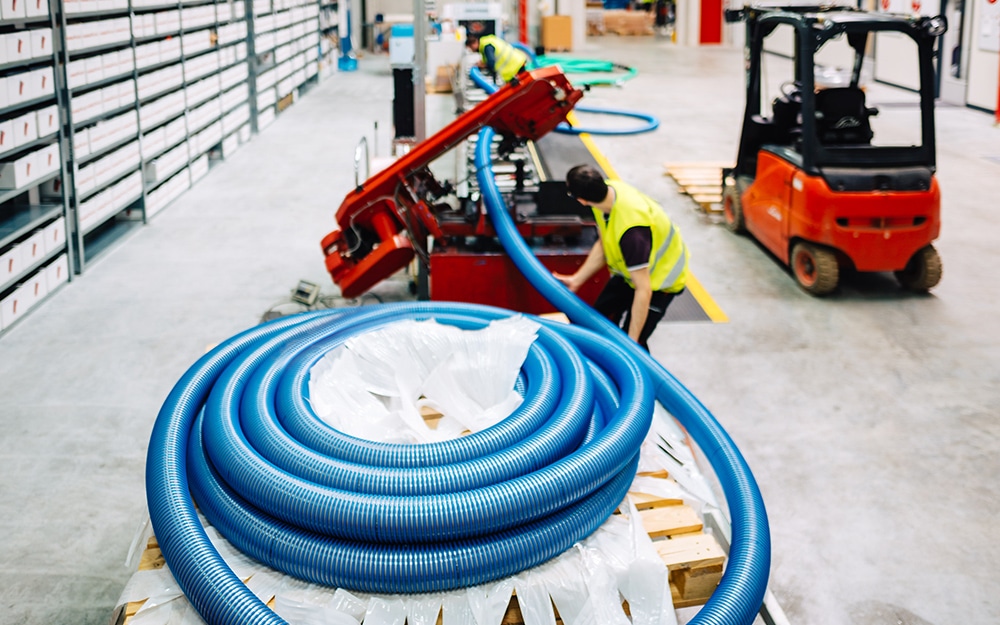In today’s industrial landscape, hoses play an indispensable role across a wide range of applications — from hydraulic machinery to chemical processing, from agriculture to oil and gas. These flexible conduits are more than just tubes; they are engineered components designed to withstand extreme pressures, corrosive environments, and demanding operational conditions. The demand for reliable, safe, and innovative hose solutions continues to grow, making hose manufacturers essential partners for businesses worldwide.
This article explores the importance of hose manufacturers, the materials and technologies they employ, the industries they serve, and how advancements in hose design are shaping the future of industrial efficiency.
Understanding the Basics of Industrial Hoses
What is an Industrial Hose?
An industrial hose is a flexible tube designed to transport fluids, gases, or granular materials from one location to another. Unlike simple household hoses, industrial hoses are engineered for durability, flexibility, and safety in complex and often hazardous environments.
Types of Industrial Hoses
Hoses come in many varieties, including:
- Hydraulic hoses – Designed to transfer hydraulic fluids under high pressure.
- Chemical hoses – Resistant to corrosive chemicals and solvents.
- Air hoses – Lightweight hoses for compressed air in pneumatic systems.
- Food and beverage hoses – FDA-compliant hoses for sanitary processing.
- Exhaust and ducting hoses – Used for venting fumes, smoke, or dust.
Each type is tailored to its specific function, requiring expertise and precision during manufacturing.
The Importance of Hose Manufacturers
Ensuring Safety and Reliability
Industrial hoses operate in critical environments. A failure can cause downtime, environmental damage, or even injury. Hose manufacturers ensure reliability by adhering to strict quality control measures and industry standards.
Customization for Applications
No two industries are exactly alike. Manufacturers work closely with businesses to design customized hoses that meet unique pressure, temperature, and chemical-resistance requirements. This adaptability makes them valuable partners across diverse sectors.
Innovation and Technology
From advanced polymer science to computer-aided design, hose manufacturers incorporate the latest technologies to produce solutions that are lighter, stronger, and more efficient. These innovations help industries achieve higher productivity while minimizing maintenance costs.
Materials Used by Hose Manufacturers
Rubber
Natural and synthetic rubbers are widely used due to their flexibility and resilience. They are common in hydraulic, automotive, and industrial hoses.
Thermoplastics
Thermoplastics offer excellent chemical resistance and can be extruded into lightweight hoses. They are particularly popular in medical, food, and high-purity applications.
Metals
For high-temperature or corrosive applications, metal hoses provide unmatched durability. Stainless steel braided hoses, for instance, are used in oil refineries, aerospace, and power generation.
Composite Materials
Composite hoses combine multiple layers of different materials, providing enhanced strength, flexibility, and resistance to extreme environments.
Key Industries Served by Hose Manufacturers
Oil and Gas Industry
In oilfields and refineries, hoses are subjected to extreme pressures, temperatures, and chemical exposure. Hose manufacturers design products that ensure safety while maintaining flow efficiency.
Agriculture
Farmers rely on hoses for irrigation, spraying fertilizers, and handling animal waste. These hoses must be durable and resistant to UV rays and harsh weather conditions.
Food and Beverage
Manufacturers produce food-grade hoses that meet sanitary regulations. These hoses are used for transferring milk, beer, soft drinks, and other consumables without contamination.
Construction and Mining
Heavy machinery depends on hydraulic hoses to perform demanding tasks. Dust, abrasion, and high-pressure loads make robust hoses essential in these industries.
Chemical Processing
Chemical hoses must resist aggressive solvents, acids, and other hazardous materials. Manufacturers employ advanced materials to prevent leaks and ensure worker safety.
Quality Standards and Testing
Hose manufacturers adhere to global standards such as ISO, SAE, and FDA guidelines. Before a hose reaches the market, it undergoes rigorous testing for:
- Burst pressure
- Flexibility and bend radius
- Abrasion resistance
- Chemical compatibility
- Temperature tolerance
These quality checks ensure that every hose performs reliably under real-world conditions.
Advancements in Hose Manufacturing
Smart Hoses
Emerging technologies now allow hoses to be embedded with sensors that monitor pressure, temperature, and wear. These smart hoses provide real-time feedback, reducing the risk of failure and downtime.
Sustainable Manufacturing
Environmental sustainability is becoming a priority. Manufacturers are exploring eco-friendly materials, recyclable composites, and energy-efficient production processes.
Lightweight, High-Strength Materials
The development of lighter yet stronger hoses helps reduce energy consumption in transportation and operation, especially in aerospace and automotive applications.
Choosing the Right Hose Manufacturer
Factors to Consider
When selecting a manufacturer, businesses should evaluate:
- Experience and expertise in the industry.
- Compliance with standards and certifications.
- Customization options for unique applications.
- Technical support and after-sales service.
Importance of Partnerships
Strong partnerships with hose manufacturers go beyond supply. They provide engineering support, problem-solving, and innovation to help industries remain competitive.
The Future of Hose Manufacturing
The future of hose manufacturing is promising, driven by:
- Digitalization – Smart hoses and IoT integration.
- Sustainability – Greener materials and reduced carbon footprints.
- Global demand – Expanding industries such as renewable energy and electric vehicles.
As industries evolve, hose manufacturers will continue to innovate, ensuring that hoses remain reliable components in critical systems worldwide.
Conclusion
Hoses may seem like simple tools, but in reality, they are lifelines of industrial operations. Behind every reliable hose lies the expertise, research, and innovation of dedicated hose manufacturers. By providing safe, durable, and customized solutions, these manufacturers play a critical role in keeping industries moving forward. Whether in oilfields, food processing plants, or construction sites, their contributions ensure operational efficiency, safety, and progress.
As industries advance toward smarter and more sustainable solutions, hose manufacturers are set to remain at the forefront of innovation — building the connections that power modern life.

